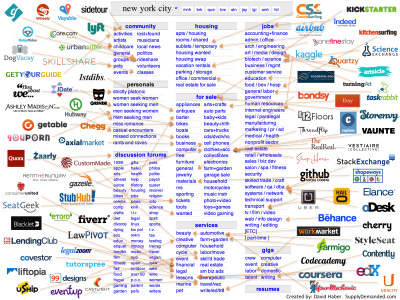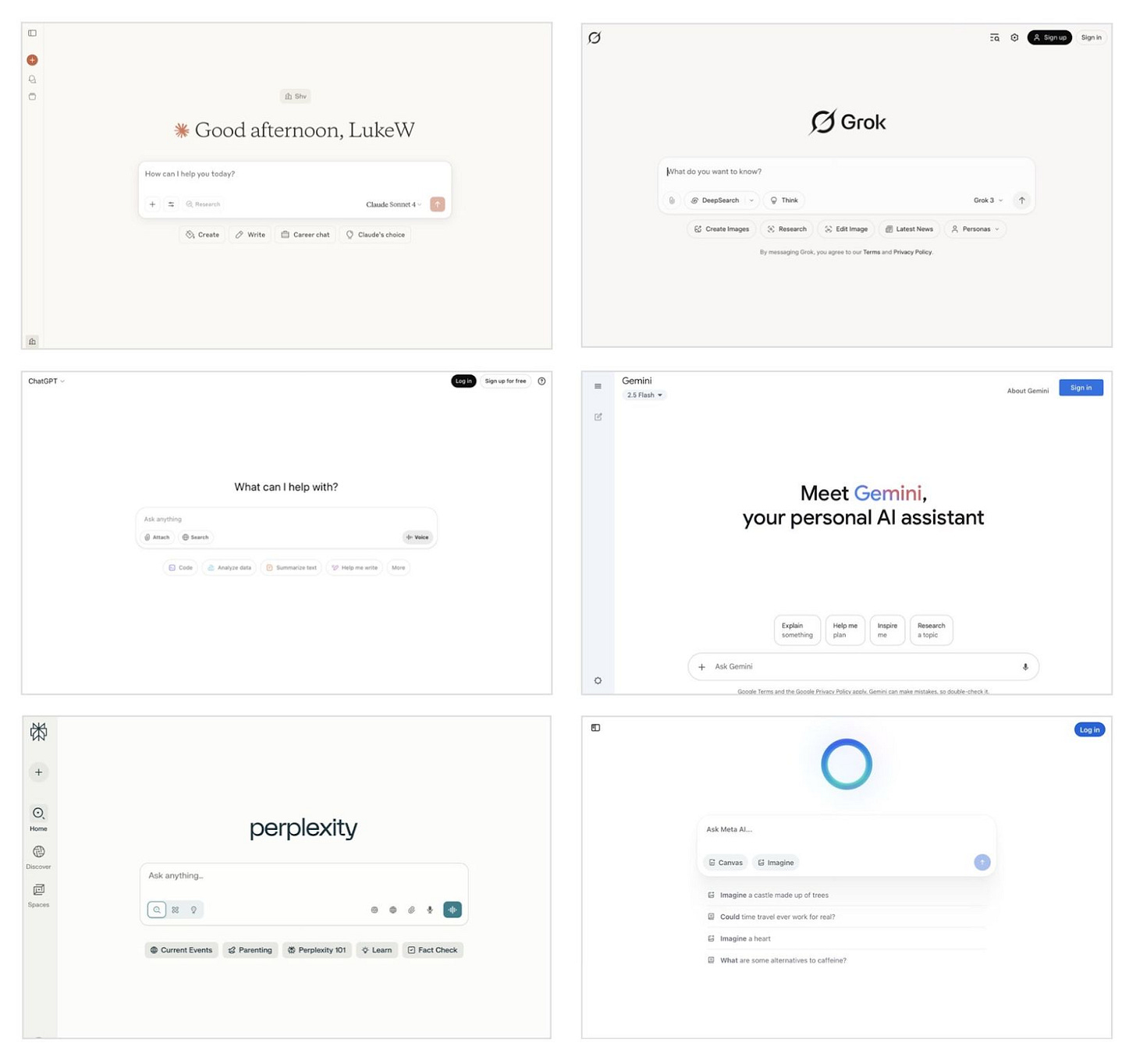AI is a convergent force
Dread it, run from it, convergence arrives all the same
What follows is ~fairly vebatim version of my talk from this year’s Pioneer event.
Let’s talk about AI and transformation. I’m not going to bore you with the whole “AI is going to change the world” speech—we’re past that.
I want to make three specific provocations in our session today. First, AI is a deeply convergent force. Second, the fallout from this will be massive. And third, there are huge opportunities for all of us as a result.
Convergence
Let’s start with the first idea: AI is a convergent force. It breaks down all the boundaries that used to keep things separate.
In a way technology has always done this. There’s a great video called “The Evolution of the Desk” that shows how we’ve systematically digitized everything from our rolodex to our calendar until we’re just left with a laptop and a phone.
But for the last 20 years in software, the playbook has been the opposite. It’s been about unbundling.
There are 2 ways to make money in software: bundling and unbundling — Jim Barksdale, 1995
We all remember when VCs advised startups to unbundle Craigslist, and what did we get? A shitload of apps.
Other advice was to take every spreadsheet and turn it into a dedicated SaaS app. That produced another pile. We then looked at the customer lifecycle, chopped it up, and built a hyper-specific tool for every tiny niche. This led to an explosion. The average small company now runs on something like 50 to 60 different SaaS apps.
AI is going to reverse that trend. To understand why it’s worth asking why these products were ever separate in the first place. Usually, it’s because of different buyers, different UIs, or different backend integrations. But these boundaries are starting to erode.
Take the UI. Every tech shift has brought a new UI—Windows 95 brought windows/icons/menus/points to the mainstream, the web brought the blue links, social added likes & shares, and iPhones brought us to a world of tap & type & pinch & zoom.
So what’s the UI of AI? It seems to be converging on 2 common patterns. The first is just a big, dopey text area that asks, “What are you trying to do?” This is a lot like Google showing up in 1998 with a single search box.
But we’ve moved from search to do. But when you let people type what they want to do, they’re not going to respect your product’s boundaries. You’ll ask your HR tool to book you a day off, and then you’ll say, “...and cancel all my meetings.” When it says it can’t, it’s going to feel broken. Why can’t it? Oh I have to type it into this other magic box? Why? This UI forces products to expand.
The second UI is the copilot, the little sidebar assistant that helps you use the product. This erodes the concept of being “good at software.” None of us need to be the Excel wizard anymore; we can just ask the assistant how to do something, and now we all know Excel. We’re headed for a world where everyone can use everything, and expect it to do everything.
You might argue that building all the necessary integrations is too hard. But code itself is commoditising. Microsoft says 20-30% of its new code is written by AI. Meta thinks it will be over half within a year. Y Combinator said a quarter of their startups were running on 95% AI-generated code. Last week, Anthropic showed a video of their model, Claude, cloning their flagship product in five and a half hours.
The boundary walls we’ve known are crumbling, both at the UI layer and the engineering layer.
Fallout
So, what does this mean for that explosion of apps? I think you’re going to see a lot of them merge, get acquired, or fade away. But if the products converge, then the functions within a company might start to merge too. This is the fallout. Think about it: a function is just roles, goals, and products. If everyone starts using the same products, the roles will inevitably converge. Now, roles have always evolved.
Some jobs disappear. We used to have elevator operators to operate the big metal box; soon we won’t have drivers for the other big metal box.
Some jobs disperse. Being a typist was once a profession; now we all just type.
And some jobs distill or merge. A news crew of five people got replaced by one person with a cell phone. We used to have professional restaurant critics; the reality is, we’re all fucking restaurant critics now.
In the future we should assume everyone is AI-pilled and is good at prompting and “getting shit done with AI”. So where exactly does a role stop?
I’m not trying to argue that your CFO will also be your chef. There’s a great Steve Jobs quote where he was asked about convergence and said it would mean your TV starts making toast. It sounds ridiculous because it’s in the wrong room.
But convergence does happen within a local scope. We have smart TVs and we have toaster ovens. No one thinks NetSuite will start writing code or GitHub will run payroll. But it’s entirely reasonable that within a function like productivity, your email, chat, docs, and project management all become one thing. That’s not a speculation, that’s what Notion are building right now.
It’s reasonable that in marketing, you won’t have an ads agent and a brand agent and an SEO agent; you’ll have one marketing agent and a team of AI-enabled full-stack marketers.
And obviously, it’s far more likely you’ll have one brilliant customer agent steeped in rich context than a dozen different agents for sales, support, and success that don’t talk to each other.
Opportunity
This is a really long way of saying that we, in CS, need to broaden our mandate. This is a huge opportunity.
For anyone who has adopted Fin, you should realise that you’re not just good at AI for customer service. You’re good at using AI to transform business conversations and deliver insane results. That skill isn’t confined to one department; it’s valuable across the entire customer lifecycle.
We used to think of people as being T-shaped—broad knowledge with one deep specialty. AI lets all of us go deep in multiple areas, and move beyond our now paper-thin boundary walls.
In times of massive change, the people who benefit most are the ones who adapt quickest. Companies are going to look around and ask, “Who is the best at applying AI to our business?” Undeniably, that’s going to be the people who do it first — right now that is the people in customer service. This is our time.
We’re heading into a generalist renaissance, where we can be so much more effective than we were just two years ago. For the folks who embrace that, the opportunities will be massive. I hope you get to enjoy them!



